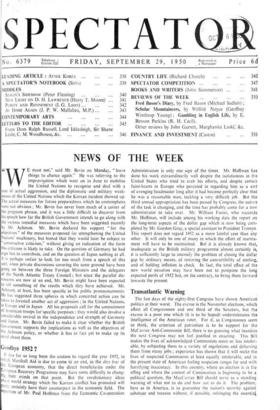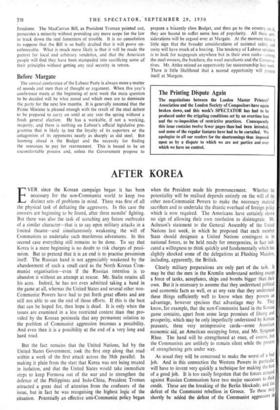Transatlantic Warning
The last days of the eighty-first Congress have shown American politics at their worst. The excuse is the November elections, which affect all Congressmen and one third of the Senators, but the excuse is a poor one which (it is to be hoped) underestimates the intelligence of the American voter. For if, as Congressmen seem to think, the criterion of patriotism is to be support for the McCarran Anti-Communist Bill, there is no guessing what inanities the next Congress may not feel justified in enacting. This Bill makes the lives of acknowledged Communists more or less intoler- - able, by subjecting them to a variety of regulations and debarring them from many jobs ; experience has shown that it will make the lives of suspected Communists at least equally intolerable, and in the present state of American feeling suspicion ranges far and with horrifying inaccuracy. In this country, where an election is in the offing and where the control of Communism is beginning to be a political question, the MacCarran Bill should serve as a standing warning of what not to do and how not to do it. The problem, here as in America, is to guarantee the nation's security against sabotage and treason without, if possible, infringing the essential
freedoms. The MacCarran Bill, as President Truman pointed out, persecutes a minority without providing any more scope for the law to track down the real fomenters of trouble. It is no consolation to suppose that the Bill is so badly drafted that it will prove un- enforceable. What is much more likely is that it will be made the pretext for local and arbitrary vendettas, and that the American people will find they have been stampeded into sacrificing some of their principles without getting any real security in return.



























 Previous page
Previous page